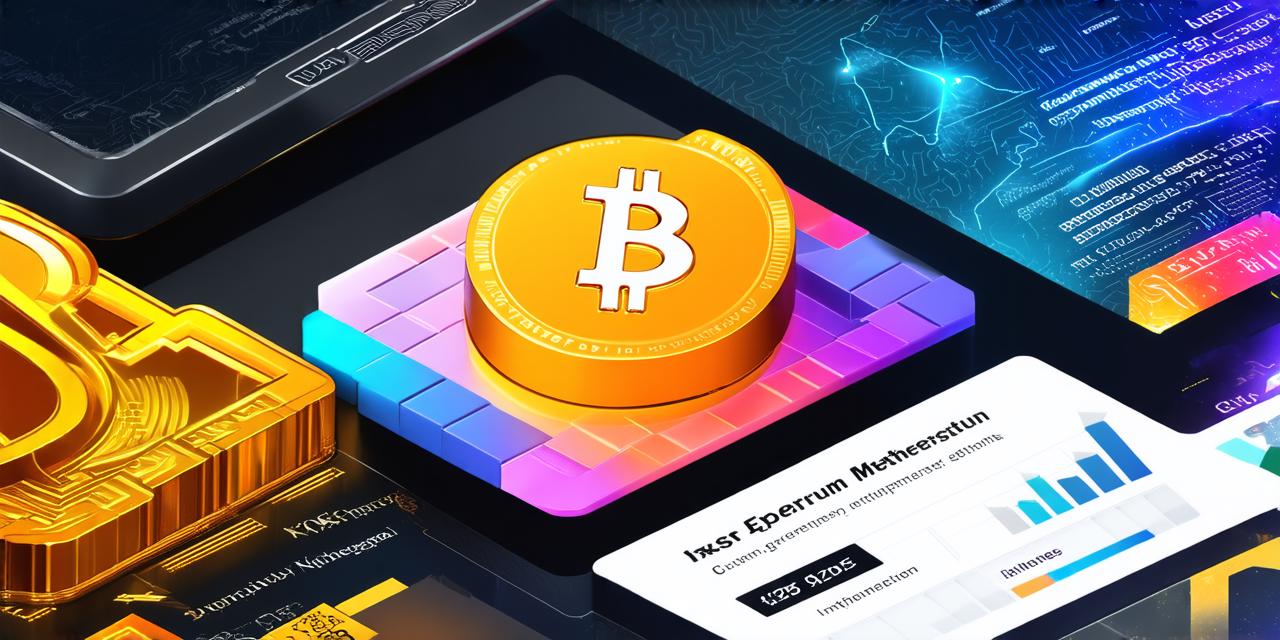
In recent years, the cryptocurrency world has experienced significant growth and evolution.
From Bitcoin’s inception in 2009 to the emergence of new blockchain platforms and decentralized applications (dApps), the crypto landscape is constantly changing and evolving.
As a developer, staying up-to-date with these changes and understanding how they impact your work is crucial to success in the industry.
Blockchain Technology: The Foundation of Cryptocurrencies
Blockchain technology is the underlying foundation of cryptocurrencies and other decentralized systems. At its core, a blockchain is a distributed database that is maintained by a network of computers.
Each block in the chain contains a record of multiple transactions, which are verified and added to the ledger in chronological order.
One of the key features of blockchain technology is its decentralized nature, meaning that there is no central authority controlling the network or the ledger. Instead, transactions are validated and processed by a distributed network of nodes, making it difficult for any single entity to manipulate the system.
Smart Contracts: Automating Business Logic
Smart contracts are self-executing programs that run on a blockchain network. They allow developers to automate complex business logic and processes, without the need for intermediaries or third-party trust.
Smart contracts can be used to facilitate transactions, manage assets, and even issue tokens, making them an integral part of many cryptocurrency projects.
Decentralized Applications: Building on Blockchain Technology
Decentralized applications (dApps) are software programs that run on a blockchain network and can be accessed through a web browser or mobile app. Unlike traditional centralized applications, dApps are decentralized and operate without the need for intermediaries or third-party trust.
Some popular examples of dApps include:
- CryptoKitties: A game that allows users to collect and breed unique digital cats using Ethereum’s blockchain technology.
- OpenSea: A marketplace for buying, selling, and trading non-fungible tokens (NFTs) on the Ethereum blockchain.
- IPFS: A decentralized file storage system that allows users to store and share files without relying on centralized servers.
Non-Fungible Tokens: Unique Assets on the Blockchain
Non-fungible tokens (NFTs) are unique digital assets that are stored on a blockchain network. Unlike cryptocurrencies, which are fungible and can be exchanged for one another, NFTs are unique and cannot be replaced with another token.
NFTs have gained popularity in recent years as a way to represent ownership of unique assets such as art, collectibles, and in-game items. Some popular platforms for buying, selling, and trading NFTs include OpenSea, Rarible, and SuperRare.
The Future of Cryptocurrencies and Blockchain Technology
As the cryptocurrency landscape continues to evolve, there are several trends and developments that are expected to shape the future of blockchain technology and cryptocurrencies. Some of these include:
- Regulatory clarity: As governments around the world begin to provide regulatory guidance on cryptocurrencies and blockchain technology, we can expect to see more clarity and stability in the industry.
- Scalability: The scalability of blockchain networks is a major challenge, as current systems struggle to handle high transaction volumes. Solutions such as sharding, sidechains, and off-chain scaling are expected to address this issue.
- Privacy and security: As adoption of cryptocurrencies and blockchain technology continues to grow, concerns around privacy and security will become increasingly important. Technologies such as zero-knowledge proofs and homomorphic encryption are expected to play a key role in addressing these concerns.
Conclusion
The cryptocurrency landscape is constantly changing and evolving, with new developments and trends emerging all the time. As a developer, staying up-to-date with these changes and understanding how they impact your work is crucial to success in the industry. By exploring key topics such as blockchain technology, smart contracts, decentralized applications, non-fungible tokens, and more, you can gain a deeper understanding of what’s happening in the world of cryptocurrencies today and position yourself for success in the future.
ʾh3>FAQs
Here are some frequently asked questions about cryptocurrencies and blockchain technology:
-
What is a blockchain?
-
What are smart contracts?
-
What are decentralized applications (dApps)?
-
What are non-fungible tokens (NFTs)?
-
What is the future of cryptocurrencies and blockchain technology?
A blockchain is a distributed database that is maintained by a network of computers. Each block in the chain contains a record of multiple transactions, which are verified and added to the ledger in chronological order.
Smart contracts are self-executing programs that run on a blockchain network. They allow developers to automate complex business logic and processes, without the need for intermediaries or third-party trust.
Decentralized applications (dApps) are software programs that run on a blockchain network and can be accessed through a web browser or mobile app. Unlike traditional centralized applications, dApps are decentralized and operate without the need for intermediaries or third-party trust.
Non-fungible tokens (NFTs) are unique digital assets that are stored on a blockchain network. Unlike cryptocurrencies, which are fungible and can be exchanged for one another, NFTs are unique and cannot be replaced with another token.
As the cryptocurrency landscape continues to evolve, there are several trends and developments that are expected to shape the future of blockchain technology and cryptocurrencies. These include regulatory clarity, scalability, privacy, and security.
Conclusion
The cryptocurrency landscape is constantly changing and evolving, with new developments and trends emerging all the time. As a developer, staying up-to-date with these changes and understanding how they impact your work is crucial to success in the industry. By exploring key topics such as blockchain technology, smart contracts, decentralized applications, non-fungible tokens, and more, you can gain a deeper understanding of what’s happening in
